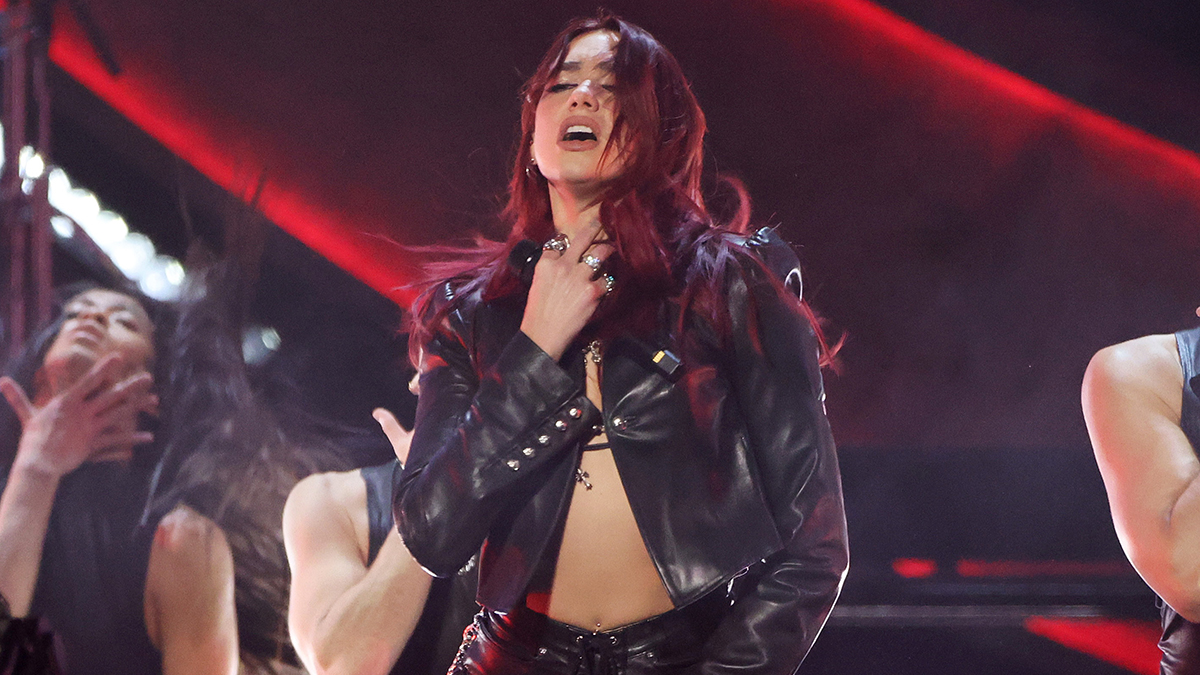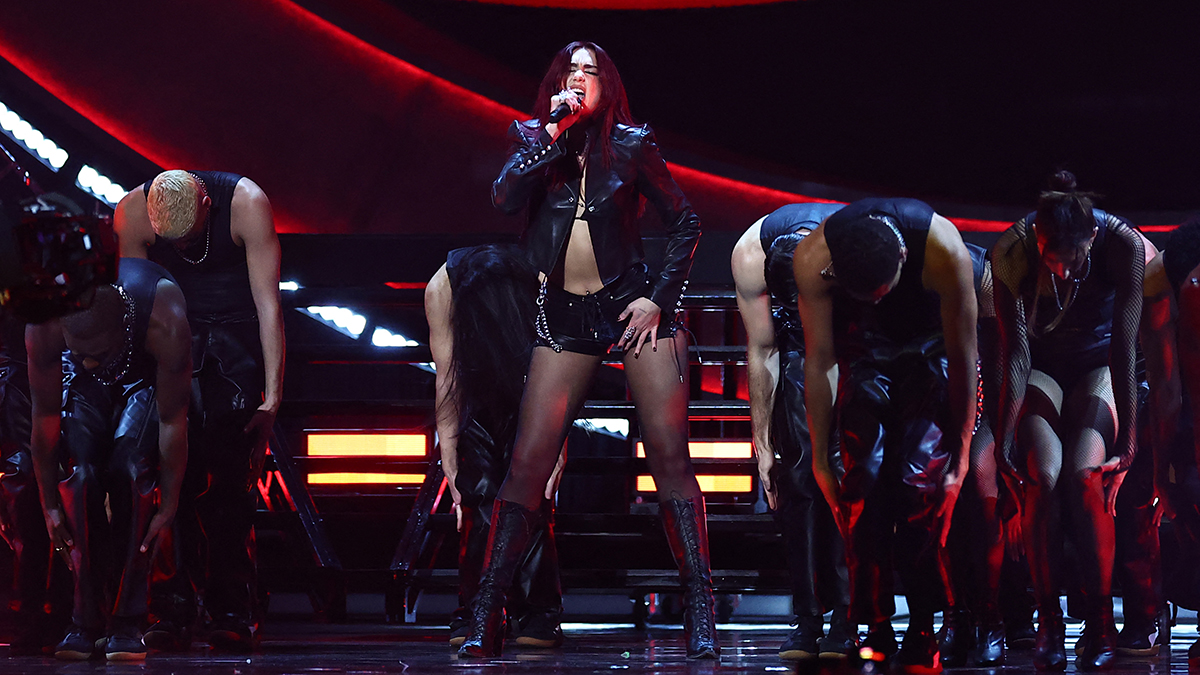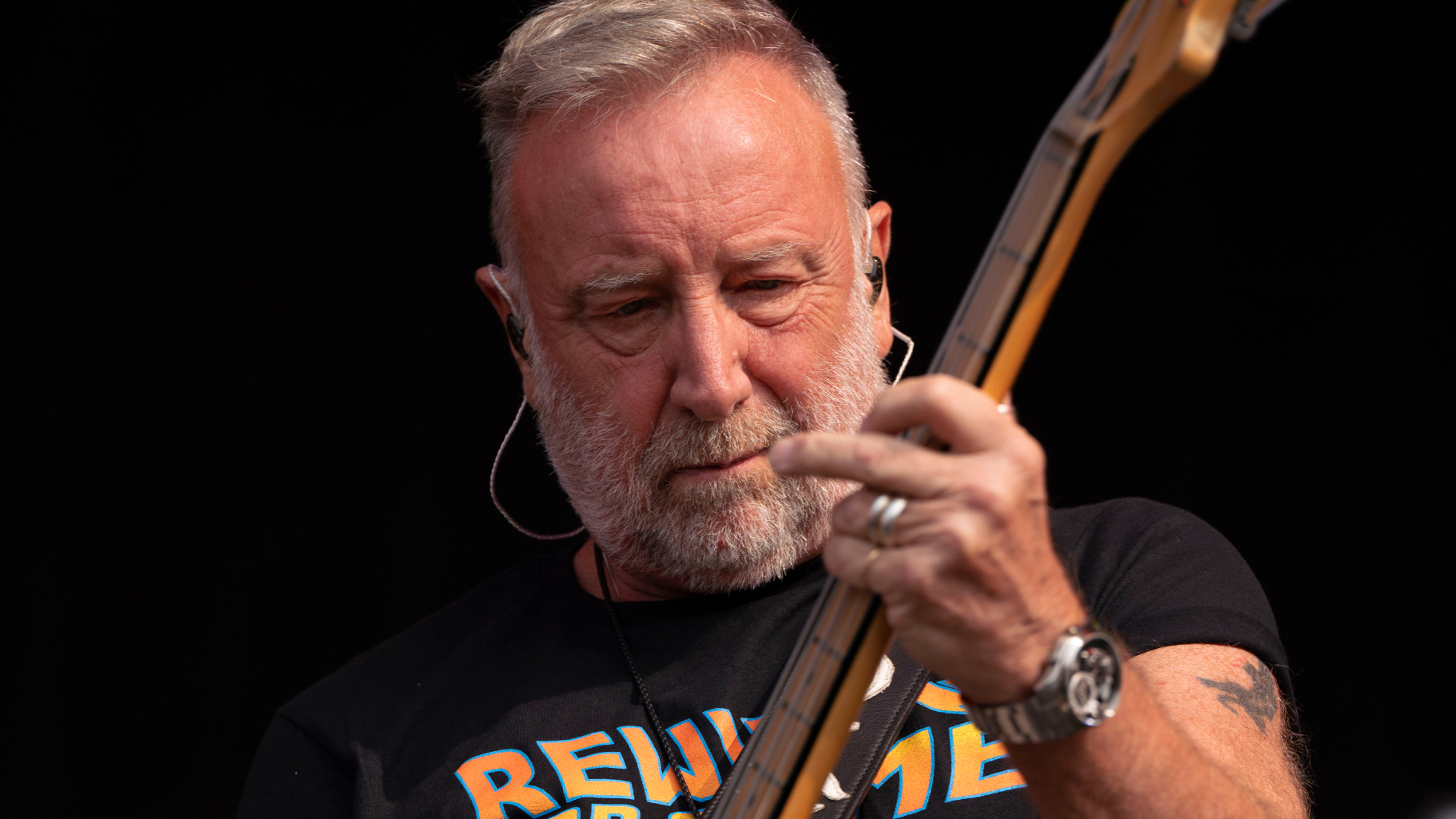“It’s MIDI, don’t get mad at me! If I could play bass like that, I would!”: Producer Ian Kirkpatrick on the bassline for Dua Lipa’s Don’t Start Now
"It's a little Bee Gees and a little Daft Punk... a little bit Alan Braxe and Fred Falke"

As Dua Lipa prepares to headline the Pyramid Stage at the Glastonbury Festival tonight, one of the most eagerly-awaited moments of her set is the inevitable performance of Don't Start Now, the disco banger that served as the lead single for her 2020 album, Future Nostalgia.
The song was released in 2019, and written by Emily Warren, Ian Kirkpatrick, Caroline Ailin and Dua Lipa herself. Kirkpatrick also produced the track, and back in 2020, he discussed the writing and recording process with Music Week.
Don’t Start Now began life in Emily Warren’s Wyoming cabin during a songwriting session in January 2019, and took shape throughout that year.
“The lyrical concept started in January and the vibe came from the night before,” Kirkpatrick recalls. “We’d gone out to this random bar in the middle of Jackson Hole and it was disco night, and Don’t Start Now came the next day.”
Lipa ended up recording her vocal in July, but what of that killer bassline, which has since been covered countless times on YouTube?
“The bassline is a little Bee Gees and a little Daft Punk,” reckons Kirkpatrick. “It’s a little bit Alan Braxe and Fred Falke, if anyone knows those DJs - those old Eurohouse kind of classy basslines. It was the sum of me listening to awesome basslines for 10 years and trying to emulate that, so I’m glad people like it.”
It turns out, though, that there was no bass guitar involved at all.
Get the MusicRadar Newsletter
Want all the hottest music and gear news, reviews, deals, features and more, direct to your inbox? Sign up here.
“It’s MIDI, don’t get mad at me!” Kirkpatrick confirms. “But it’s programmed responsibly, so people can actually play it. It’s meant to sound real and it might as well be. If I could play bass like that, I would!”
Discussing the bassline with Sound on Sound in 2020, Kirkpatrick said: "I used the Scarbee MM-Bass plugin for the main bass sound. I played the main part on the keyboard, and then edited it afterwards. There's a sub bass underneath it, and it's blended with slaps in the drop, which is from a [Spectrasonics] Trilian bass patch, plus there's a thumb bass."
It's certainly true that the bassline translates well to a real bass guitar, as you'll hear if you check out Dua Lipa's Tiny Desk performance of Don't Start Now.
The song is also notable for its structure, which Kirkpatrick says differs from other records he’s produced in that it starts with the first line of the chorus.
“The intro used to be the vocal chop that is now the bridge and the outro,” he reveals. “I’ve never been a big proponent of starting a song with a hook for some reason. You don’t want to give away the whole thing and you also don’t want to have too much information being delivered at once. It’s a way of foreshadowing, but it seemed to work out in this case.”
There was another twist in the pre-chorus: “Another bass comes in that’s more like a ’90s synth. I thought the song was too disco, so I tried to depart from that a little bit there. Then, when I realised The Weeknd’s Can’t Feel My Face has a similar structure, where it goes into these big chords and then drops in with the bassline, I thought, ‘Wait a minute, this might actually work!’”
Work it most certainly did - Don’t Start Now hit number 2 on both the UK Singles Chart and the Billboard Hot 100, and set the tone for the album campaign that followed.
You could argue that it also paved the way for 2023's Dance The Night, Dua Lipa's contribution to the Mark Ronson-produced Barbie soundtrack, and another huge hit for her.
Reflecting on the experience of recording that track, Lipa told Music Week recently: "I really enjoyed writing for film. It was also the last disco-y thing that I was going to do for a while. I might do something else in the future. But that was my final hurrah of the Future Nostalgia era.”
Right now, of course, Lipa is very much in her Radical Optimism era, but Don't Start Now remains a key marker point in career, and one that she'll have to go some way to top.




I’m the Deputy Editor of MusicRadar, having worked on the site since its launch in 2007. I previously spent eight years working on our sister magazine, Computer Music. I’ve been playing the piano, gigging in bands and failing to finish tracks at home for more than 30 years, 24 of which I’ve also spent writing about music and the ever-changing technology used to make it.




![PRS Archon Classic and Mark Tremonti MT 15 v2: the newly redesigned tube amps offer a host of new features and tones, with the Alter Bridge guitarist's new lunchbox head [right] featuring the Overdrive channel from his MT 100 head, and there's a half-power switch, too.](https://cdn.mos.cms.futurecdn.net/FD37q5pRLCQDhCpT8y94Zi.jpg)





